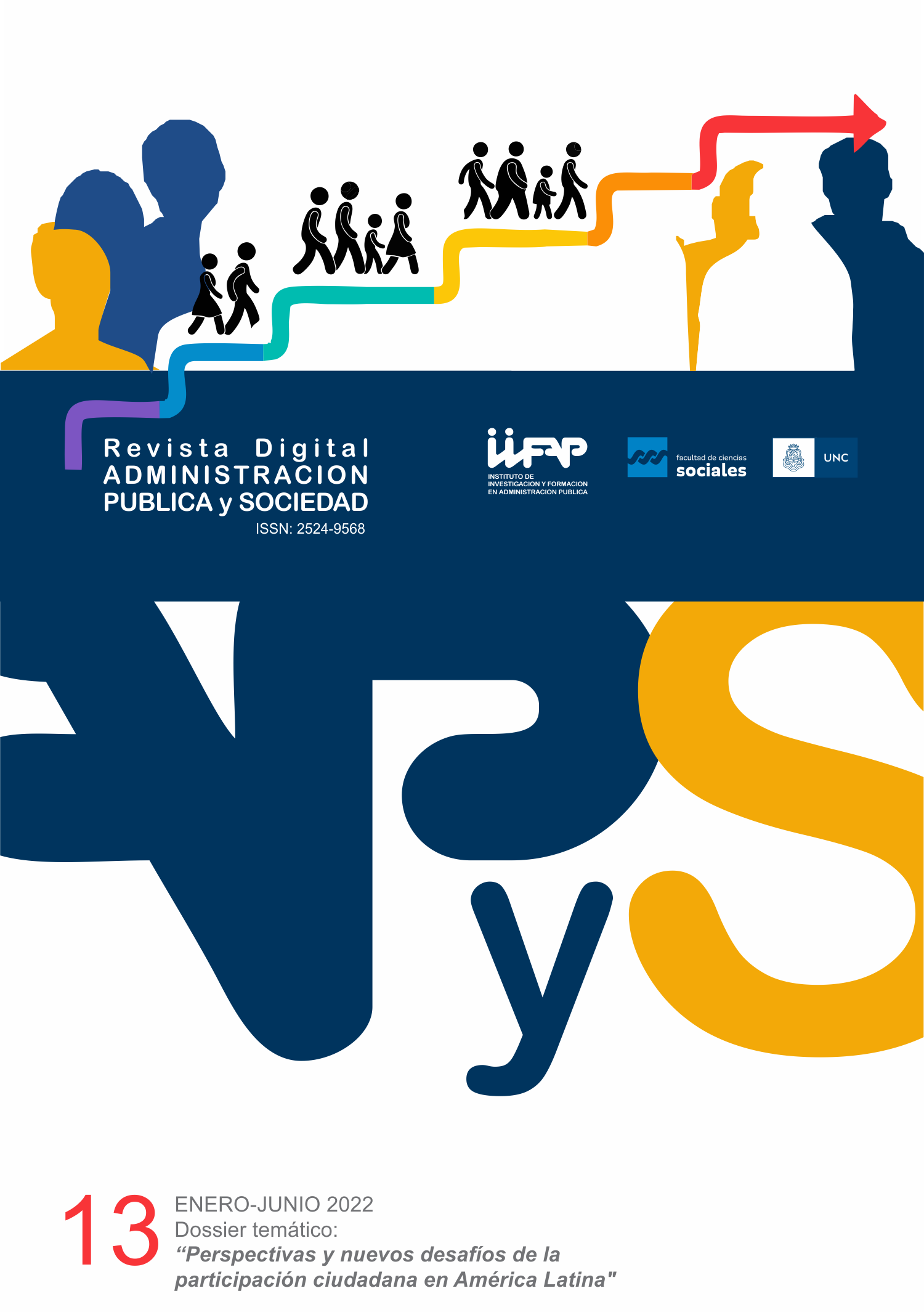Presupuesto participativo: aportes para invertir las prioridades sociales y territoriales
Main Article Content
Abstract
This article critically explores to what extent and how participatory budgeting (PB) contributes to ensuring that socially excluded and disadvantaged populations are engaged in PB and benefit from the funded projects, given that excluded groups may participate but their projects may not be selected through decision-making processes based on voting. The chapter extracts evidence-based lessons from a study carried out for the World Bank in Moscow (Shulga et al., 2017), looking specifically for PB methods to strengthen the focus of social protection in PB programmes, primarily with regard to social inclusion and meeting the needs of disadvantaged and vulnerable groups in Russia’s existing PB practices. Nevertheless, the case studies selected and referred to in this chapter are of interest for other regions and contexts.
Downloads
Article Details

This work is licensed under a Creative Commons Attribution-NonCommercial-ShareAlike 4.0 International License.
Authors who publish in this journal accept the following terms of the copyright policy:
- Authors shall retain their copyright (including copyrights) and shall grant to the journal the right of first publication of their work, which shall simultaneously be subject to the Creative Commons Recognition License: No commercial use of the original work or any derivative works is permitted, distribution of which must be made under a license equal to that which governs the original work.
- Authors may adopt other non-exclusive license agreements for the distribution of the version of the published work (e.g., placing it in an institutional repository or publishing it in a book) provided that the initial publication in this journal is indicated.
- Authors are allowed and encouraged to disseminate their work through the Internet (e.g., in institutional repositories or on their website) after the publication process, which may lead to interesting exchanges and increased citations of the published work. (See The Effect of Open Access).
References
Bedê, C. M. M. (2005). Trajetória da formulação e implantação da política habitacional de Belo Horizonte na gestão da Frente BH Popular, 1993/1996. Master’s dissertation, Instituto de Geociências da UFMG, Belo Horizonte.
Cabannes, Y. (2004). Participatory budgeting: a significant contribution to participatory democracy. Environment & Urbanization, 16(1), 26–46.
Cabannes, Y. (2018). The Role of Participatory Budgeting in Addressing the Needs of Disadvantaged Groups. Unpublished report. Moscow: World Bank.
Cabannes, Y. and Delgado, C. (2017). PB in secondary schools in the Nord-Pas-de-Calais Region, France. In Y. Cabannes (ed.), Another City Is Possible with Participatory Budgeting. Montréal/New York/London: Black Rose Books, pp. 88–92.
Cabannes, Y. and Lipietz, B. (2018). Revisiting the democratic promise of participatory budgeting in light of competing political, good governance and technocratic logics. Environment and Urbanization, 30(1), 1–18.
da Rocha Resende, P. (2008). Innovaciones participativas y tradiciones representativas: tensiones y complementariedades en el Municipio de Sao Paulo. Doctoral thesis, Universidad Autónoma de Barcelona, Departamento de Ciencia Política y Derecho Público Barcelona.
Dias, N. (ed.) (2018). Hope for Democracy: 30 years of Participatory Budgeting Worldwide. Faro: Oficina.
Genro, T. and de Souza, U. (1998). Presupuesto Participativo: La Experiencia de Porto Alegre. Buenos Aires: Eudeba CTA.
Mancuso, E. (2004). Quince años de presupuesto participativo: Porto Alegre, Brasil. La era Urbana: la revista de la ciudad Global, Edición especial: Presupuestos participativos, 41, 13–14.
Muñoz, C. (2004). Pedagogia da Vida Cotidiana e Participação Cidadã. São Paulo: Cortez Editora.
Prefeitura Municipal de São Paulo/Concelho do Orçamento Participativo (PMSP/COP) (2004). Balanço de gestão: Janeiro de 2001 a Dezembro de 2003. Accessed 8 December 2020 at https://www.prefeitura.sp.gov.br/cidade/secretarias/upload/arquivos/secretarias/governo/BalancoGestao.pdf.
Rueda, A. L. (2017). PB for housing in Belo Horizonte: achievements and limitations. In Y. Cabannes (ed.), Another City Is Possible with Participatory Budgeting. Montréal/New York/London: Black Rose Books, pp. 88–92.
Sánchez, F. (2004). OP: trajetória paulistana de uma inovação democrática (2001–03). Doctoral thesis, Programa de Estudos Pós-Graduados em Ciências Sociais, PUC/SP, São Paulo.
Shulga, I., Vagin, V. and Khachatryan, G. et al. (2017). Initiative Budgeting. Russian Experience of Citizens’ Participation in Addressing Local Issues. Moscow: Ministry of Finance of the Russian Federation and World Bank.
Soja, E. (2010). Seeking Spatial Justice. Minneapolis, MN: University of Minnesota Press.

